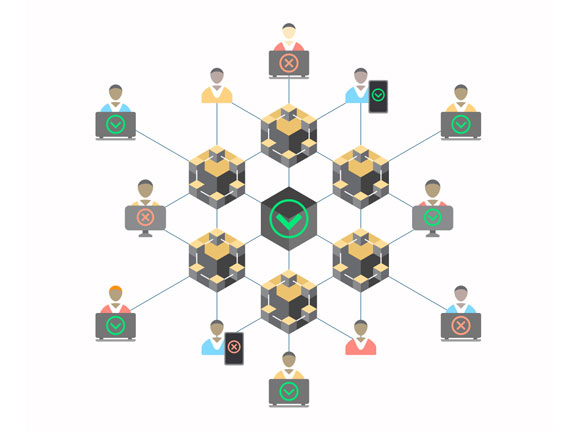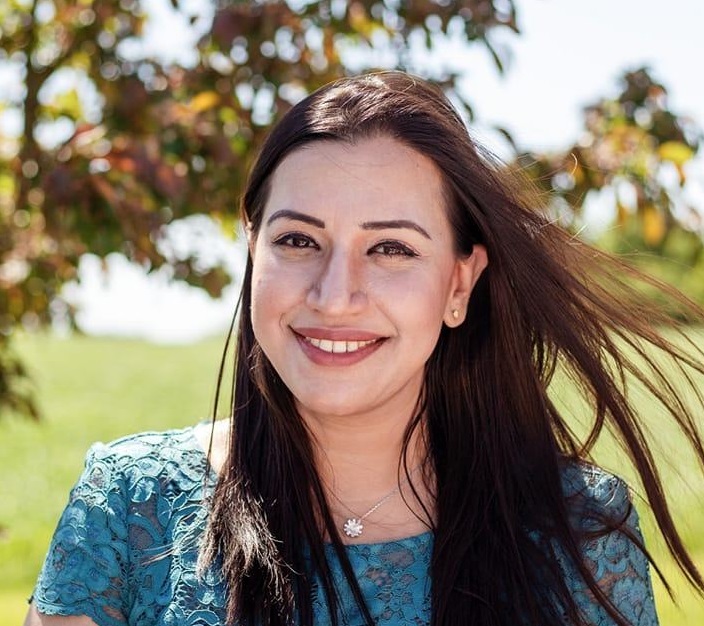Blockchain technology has given rise to a new decentralized organizational model known as Decentralized Autonomous Organizations (DAOs). A DAO is a community-led entity with no central authority, where decisions are democratically made through a transparent, blockchain-based voting process. These innovative structures have the potential to disrupt traditional hierarchical organizations and usher in a new era of decentralized, collaborative decision-making.
The concept of DAOs gained prominence around 2016 with the advent of smart contracts on platforms like Ethereum. Smart contracts enabled the autonomous execution of agreements and the formation of self-governing communities, marking a pivotal moment in the evolution of decentralized organizational frameworks.
-
1. Decentralized Governance
DAOs are managed and governed in a decentralized manner, with members collectively making decisions through a transparent, blockchain-based voting process.
-
2. Transparency and Openness
All transactions, proposals, and decisions within a DAO are recorded on the blockchain, ensuring transparency and accountability.
-
3. Automated Decision-Making and Execution
Smart contracts enforce predefined rules and execute actions automatically. They codify the processes for the DAO’s operations, enabling automated decision-making and the execution of agreed-upon actions.
-
4. Lack of Central Authority
Unlike traditional organizations, DAOs have no centralized management or leadership. Instead, they are self-governing entities, with members collectively responsible for the DAO’s direction and operations.
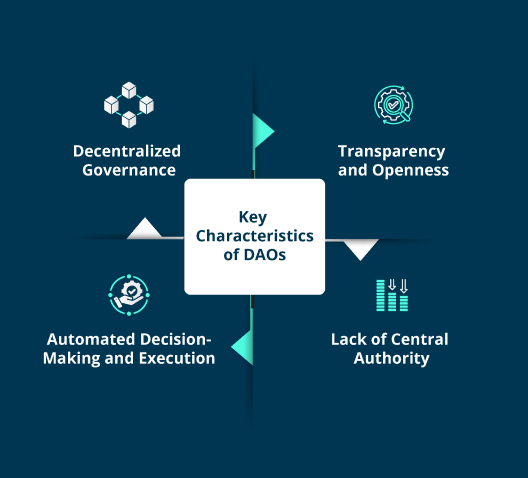
At the heart of a DAO are its smart contracts, which define the organization’s rules, decision-making processes, and resource management. Members of a DAO typically hold governance tokens, which grant them voting rights and the ability to participate in the decision-making process.
The DAO’s operations are funded through a shared treasury, which is managed and allocated through the DAO’s governance mechanisms. Members can submit proposals, debate, and vote on how the DAO’s resources should be used, ensuring a democratic and transparent decision-making process.
The DAO market has experienced rapid growth, with total treasuries increasing by over $20 billion since November 1, 2023, now totalling $40.1 billion. During this period, the number of DAOs holding treasuries exceeding $1 million has grown from 179 to 211.
The largest DAO in terms of treasury size is the Optimism Collective, commanding around $7.9 billion in value, followed by Arbitrum’s DAO with $6.8 billion, Uniswap’s DAO with $4.8 billion, Mantle’s DAO with $2.8 billion (previously holding the third spot), and Gnosis with $2.7 billion.
Together, the top five DAO treasuries account for $25 billion, representing 62.34% of the total $40.1 billion DAO market.
Other notable DAOs like ENS DAO and the Graph DAO manage assets ranging from $1 billion to $1.6 billion (Source: Bitcoin.com).
This substantial growth in DAO treasuries and the increasing number of million-dollar-plus DAOs underscore the rapid adoption and maturation of decentralized autonomous organizations. As technology and governance models continue to evolve, we anticipate further innovation and the emergence of new DAO frameworks in the future.
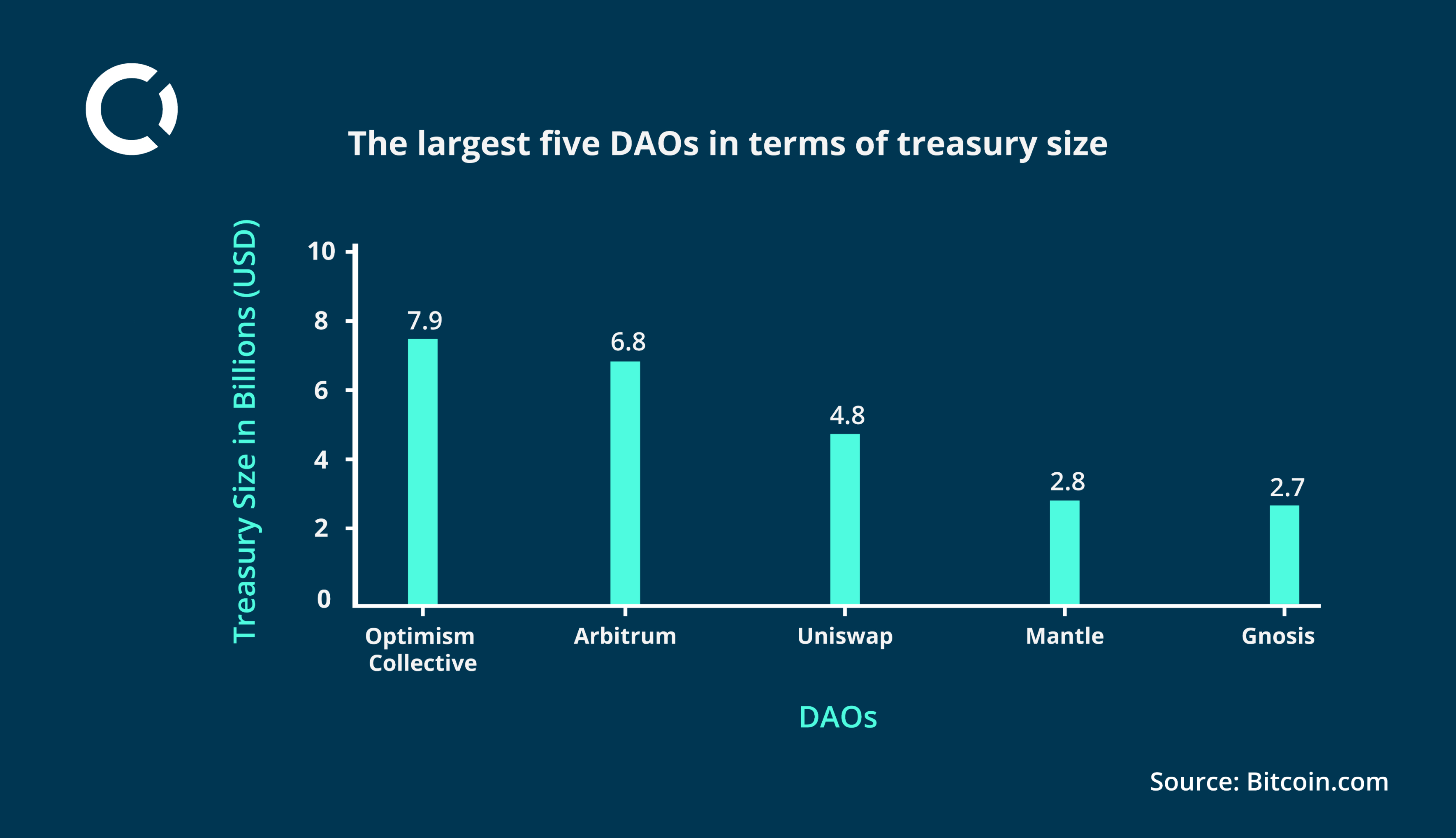
Decentralized Autonomous Organizations (DAOs) have proven to be versatile and find applications across diverse domains:
The versatility of DAOs across these use cases demonstrates their potential to revolutionize organizational governance and operational frameworks. As technology continues to advance and governance models evolve, we can expect to see further innovation in the application of DAOs across various industries and sectors.
Decentralized Autonomous Organizations (DAOs) offer several advantages:
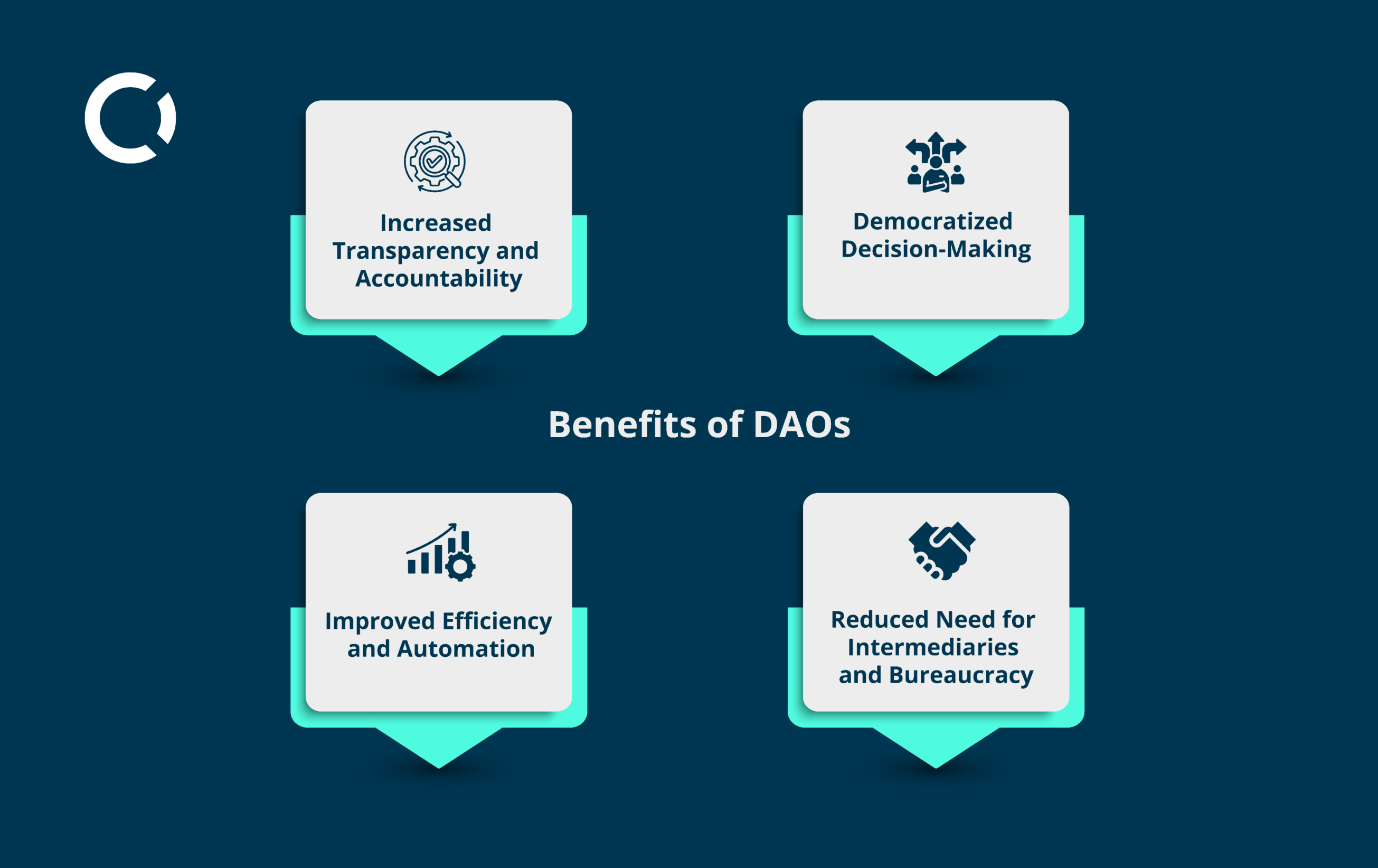
Despite their benefits, DAOs face several challenges:
These challenges underscore the need for continuous innovation, research, and collaboration within the DAO community. Addressing these issues will be crucial in unlocking the full potential of decentralized autonomous organizations.
Decentralized Autonomous Organizations (DAOs) represent a groundbreaking evolution in organizational frameworks, leveraging blockchain technology to enable transparent, democratic decision-making on a global scale. Their rapid adoption across sectors, from DeFi to social impact, underscores their potential to redefine governance. However, challenges such as governance complexity and regulatory uncertainties call for ongoing innovation. As DAO frameworks evolve, they promise continued advancements, shaping a decentralized future.
Join Codora at the forefront of blockchain innovation. We specialize in pioneering blockchain solutions that drive real-world impact and transformation. Whether you’re exploring DAO implementation, blockchain integration, or navigating decentralized landscapes, Codora is your trusted partner. Connect with us today at hello@codora.io to discover how we can empower your organization with decentralized autonomy, unlock efficiencies, and thrive in the digital era. Let’s shape the future of decentralized innovation together.

